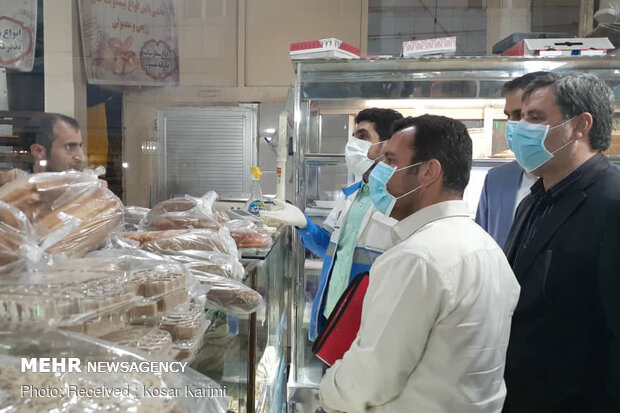These days all of us are busy thinking about health and coronavirus. Up to now, the coronavirus has sickened more than 2.7 million people and killed more than 193,000 around the world.
Developed countries had a wrong image of the performance of developing countries in confronting the pandemic crisis. Now it is clear that pandemic has infected or killed much more people in some developed countries like Italy, Spain, and the US In decades, many experts had argued that poor countries will face problems when a pandemic occurs, arguing their health systems are incapable to control pandemic and cure the patients.
We know for sure that non-Western countries have less medical equipment or money to provide useful utilities to efficiently confront the virus. They have fewer facilities to keep people safe from the pandemic. However, such shortages showed us it wasn't true. They could control this epidemic with low cost and side effects better than expected.
But what did they do? We have two different instances today. First China and second Iran. Coronavirus began in China. The Chinese government ordered a strict lockdown of Wuhan, the epicenter of this virus, for an unlimited time.
China is a rich country but not as much as a Western European country. Nevertheless, strict lockdown worked very well.
Now life has returned to normalcy in the country including in Wuhan, Hubei province. The second instance is Iran. After China, Iran was the hardest-hit country in Asia.
In the beginning, the government in Iran denied any case of the coronavirus in the country, but it acknowledged the outbreak of the virus after two persons died of the coronavirus on February 19. Thereafter, the government managed the problem very well. In the first step they activated a wartime act.
Ironically, this pandemic happened while Iran is under the harshest sanctions in history by the United States. Its economy is in recession, and the health system is facing a shortage of medical supplies and equipment. But officials applied practical ways to counter the crisis.
In the first step, they put some limitations on the broadcasting rumors about the virus also called Covid-19.
Citizens also did not react hurriedly or in an uncivilized way. They behaved normally.
The stress of a shortage of toilet paper and foods were not seen in Iran. Nobody attacked stores. They did not store face masks, gel, or toilet paper. They continued their normal life. In the second step, they activated many companies and military facilities and used the capacity of volunteers to produce face shields and gel.
You should notice that drinking alcohol is banned in Iran and there are far fewer alcohol producers in the country. In the first week, you could see that the shortage of alcohol was noticeable. But later many places, even many mosques, started to produce medical alcohol.
The third step was very essential. The government used the internet and applications to screen all people by using self-declaration information.
Iran's health system has a shortage in many aspects. They cannot hospitalize all patients. Due to the lack of enough experts and trained staff, Iran used self-declaration to find the infected people. This manner changed all the routine guidelines and led to improving, managing, and allocating resources better than expected.
Now, through the cooperation of the people, new cases of coronavirus can be found and divided into different groups: from moderate to severe. All the infected could take enough medical services and attention.
The fourth step is that the government started to control everything directly from the capital. The government buys masks, gels, and all things necessary from producers and sends them directly to the different provinces by the amount needed. In Iran, hospitals are not needed to offer higher prices to buy necessary commodities.
Hospitals focus only on healing patients.
As a sanctioned country, in which prices have increased greatly and the country is being deprived of incomes, the government cannot afford to quarantine citizens. Its economy in 2019 decreased by 9.5 percent and it cannot hand out enough money to citizens. However, it seems that 80-million Iran is acting faster and more efficiently than what the World Health Organization had expected.
Now, this disastrous pandemic could teach us many lessons. We need to learn from each other. Developing countries have some experiences that may prove useful to developed countries. If all nations start to learn from each other’s experience we can expect a better future.
First Published in Tehran Times



























Your Comment